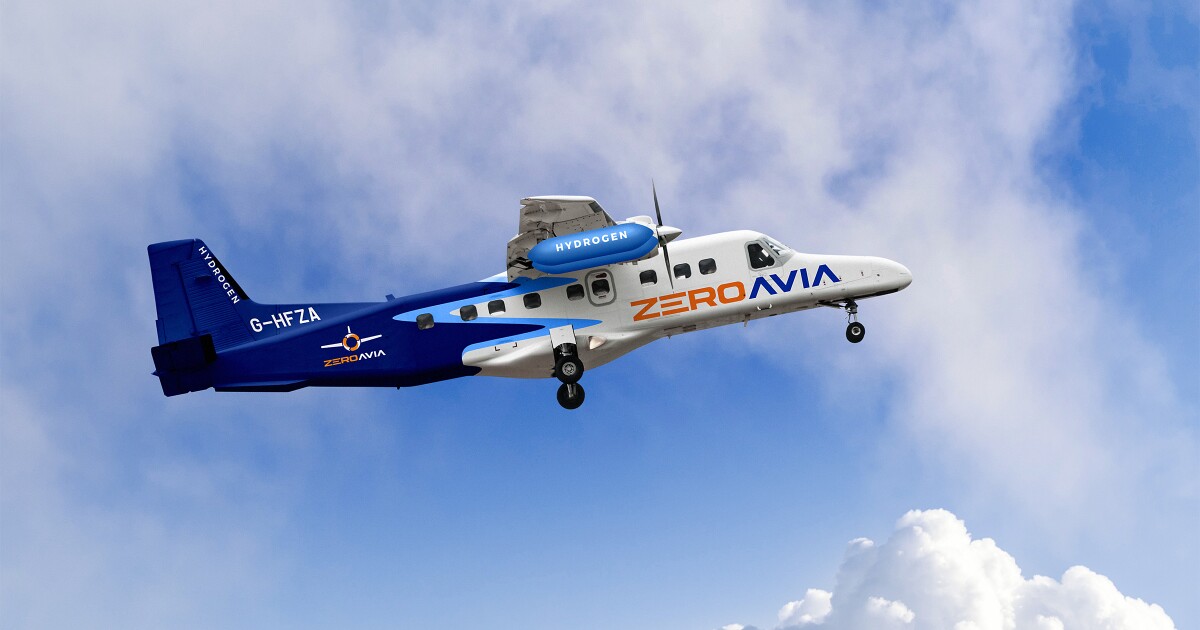ZeroAvia has joined the Fuel Cell & Hydrogen Energy Association (FCHEA) board, a leading national advocate for the research, development, and implementation of fuel cell and hydrogen energy. The company earned the FCHEA’s elite “Tier One” membership, a rank that includes General Motors, BMW, Honda, Hyundai, and Toyota.
The recognition comes after the 4-year-old ZeroAvia developed the first hydrogen-electric powertrain—an innovation that has made early zero-emission aviation possible—and completed the first flight by a commercial-grade aircraft running on hydrogen fuel cell power. These renewable-powered flights could be the future of the aviation industry. The company says its focus is transitioning short-haul aviation from fossil fuels to hydrogen, which could potentially remove half of all carbon dioxide emissions from the aviation industry where to buy cbd.
The FCHEA began in 1989 as the Nation Hydrogen Association and later merged with the U.S. Fuel Cell Council to become the FCHEA. Today, the association represents more than 50 companies and organizations that advance innovative and green technologies. The association also acts as a singular voice to shape regulations, codes, and consumer safety standards.

ZeroAvia’s Journey to Zero-Emission Aviation
Carbon dioxide is the heat-trapping gas at the heart of climate change. The fossil fuel byproduct continues to feed the climate crisis, and the race is on to move mass transportation into a realm of sustainable, zero-emission alternatives. Cars, trucks, and ships are all prolific polluters, but aircraft is a principal offender. According to the U.S. Environmental Protection Agency (EPA), aviation accounted for nearly 35% of all carbon dioxide emissions in 2018. While renewable energy solutions abound in road travel, aviation remains one of the most challenging sectors to decarbonize—a task ZeroAvia is happily taking on.
“Green hydrogen” has become one of the most promising alternatives to fossil fuels because it releases only water vapor into the environment. To create hydrogen, companies use electrolyzers, which send electric currents through the water to split hydrogen atoms from oxygen. Solar panels and wind farms worldwide also use hydrogen.

‘Green Hydrogen’ Flights
Currently, ZeroAvia is honing in on short-haul flights between 300 and 500 miles. Today, short-haul flights account for up to half of all carbon dioxide emissions in the aviation industry. That means that a complete transition to green hydrogen-electric technology could decarbonize half of all harmful emissions from the aviation sector.
The company is currently working on short-haul hydrogen-electric flights that seat up to 20 passengers, which it plans to accomplish by 2024. Next, it hopes to build a craft that can travel the same distance with 100 passengers. Not only could this revolutionize an industry that’s currently reliant on fossil fuels, but it will likely also result in more affordable prices and more accessible flights. According to ZeroAvia, their newly invented powertrain has 75% lower fuel and maintenance costs. That could cut trip costs in half compared to conventional propeller aircraft.
It has been a high-flying year for ZeroAvia, filled with plenty of strategic partnerships, including Shell Ventures, the eco-investment arm of Shell Oil, itself on a mission to reach net-zero carbon emissions by 2050. Bill Gates’ climate investment firm Breakthrough Energy Venture and Ecosystems Integrity Fund led a Series A funding netted $21.4 million for ZeroAvia. Amazon’s Climate Pledge Fund, Horizons Ventures, Summa Equity, and Shell Ventures also joined in on the financing. The ventures chipped in another $24.3 million to accelerate ZeroAvia’s hydrogen-electric engine development for a 50-plus seat aircraft in April.



